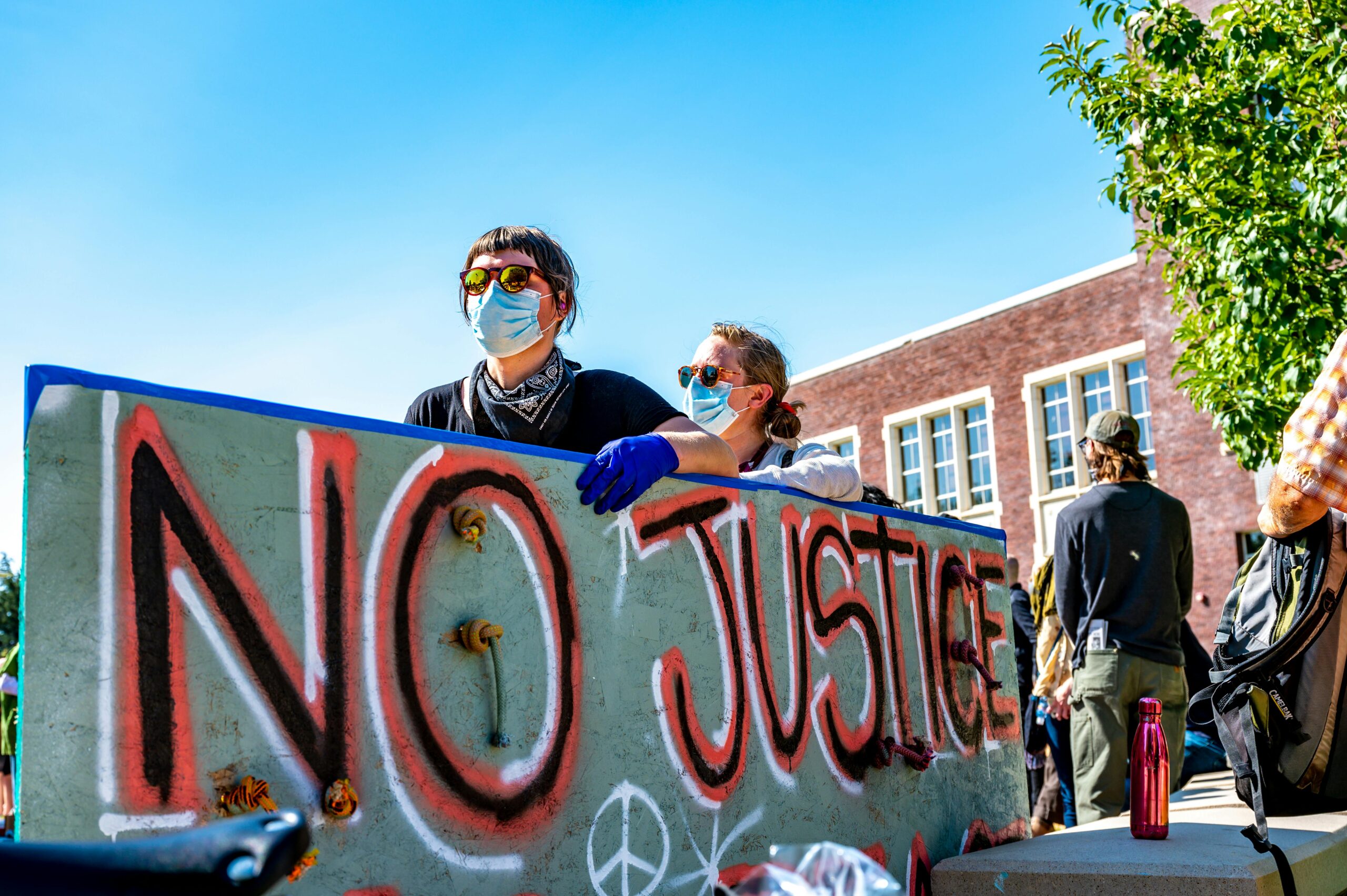
Middle River Regional Jail is a Racial and Climate Justice Issue
- Posted on
- By Zander Pellegrino
- In Blog
Despite sustained and widespread community opposition, the Jail Authority of Middle River Regional Jail (MRRJ) in the Shenandoah Valley approved a 14.5 million dollar renovation proposal to expand the jail. This regional jail reproduces many of the racial and class inequalities we see throughout America’s national systems of policing and incarceration — but at a higher rate.
Community members and local advocacy organizations have been fighting back against these injustices. Residents have shown up at city council meetings, jail authority hearings and protests since the expansion was proposed–including a rally specifically to call for better COVID-19 protections when MRRJ was allowed to become a statewide hotspot.
Before proposing this current 14.5 million dollar budget, the MRRJ Authority drafted plans for a 40 million dollar renovation package that relied heavily on expanding bed space. While receiving pressure from residents, Harrisonburg and Waynesboro City Councils publicly stated they would not support adding beds to MRRJ. Desires to support racial equity and reduce incarceration, as well as some focus on fiscal responsibility, motivated this diverse opposition.
“If we’re going to be putting money into something, we need to be putting money into our community,” Harrisonburg Mayor Deanna Reed said, “so that we’re not overcrowding the jails, because we are investing in existing programs for criminal justice reform here in Harrisonburg.”
By getting two of the five local jurisdictions to oppose the proposal, activists forced the jail authority back to the drawing board. Each budget must be approved and funded by four out of five.
However, after the jail authority heard this opposition, they had closed door planning sessions and proposed a 14.5 million dollar renovation package. While this year’s budget does not include new beds, it lays the groundwork for future expansion–literally. It proposes a footprint expansion that includes increases in storage.
Recklessly, this “renovation” proposes to solve overcrowding without a complete understanding of how incarceration rates rose so high or an acknowledgement that reducing incarceration is a legitimate strategy. Earlier this year, MRRJ reduced its numbers significantly and during covid jails across the United States reduced their populations by an average of thirty percent. Activists across the valley have called for an independent analysis of MRRJ’s incarceration rates and possible solutions to overcrowding before allocating millions of dollars to the Jail Authority’s plan.
This renovation is an unfounded and unproven expansion in disguise. It is not good for people, justice or the climate.
Why does CCAN oppose this regional jail expansion?
‘Climate justice is racial justice’ is more than a protest sign. It is a recognition that because systems of oppression are layered, our resistance to them and efforts to build a better world must also be layered. We do not have to sequentially address racism, poverty and the climate crisis as separate issues. Their causes are tightly interwoven. Environmental racism, capitalism and government (in)actions have sited polluting and policing infrastructure near poor and BIPOC communities. Incarcerated persons suffer climate impacts early and severely.
Climate justice means reversing the trend of disproportionate environmental harm and benefits. But it doesn’t stop there. It means dismantling the systems that allocated those harms and benefits in the first place.
CCAN supports defunding the police and investing in communities of care. In America, incarceration remains incredibly well funded while frontline communities and climate action lag behind.
The Middle River Regional Jail is part of these systems of oppression, policing and capitalism that uphold inequities in America and the world. Investing millions of dollars in incarceration will only further entrench the harmful systems we need to reshape and reimagine.
Residents in the Shenandoah Valley already experience this. When Harrisonburg entered into an agreement with MRRJ in 2015 the Jail Authority estimated that expenses would be 22 million dollars over 10 years. Just six years later, maintaining the jail has cost millions of dollars more than estimated. During this time incarceration rates have remained above the national average.
What comes next?
Broadly, we tell a new story about ourselves. One based on cooperation and community care, not competition and individualism. This is part of how we beat climate change and reverse generations of structural inequalities–together.
Specifically, CCANers can tell city council members in Waynesboro and Staunton that this renovation is expansion and they should reject this 14.5 million dollar budget. More details and talking points are outlined in the linked petition. Harrisonburg members can thank their city council for not endorsing the proposal. All jurisdictions should publicly reject this proposal and any new funding for MRRJ.
CCANers everywhere can join local and regional movements to defund the police, divest from incarceration and invest in community programs. Help us bring a more equitable and sustainable future one step closer.
Reach out to your elected officials below:
